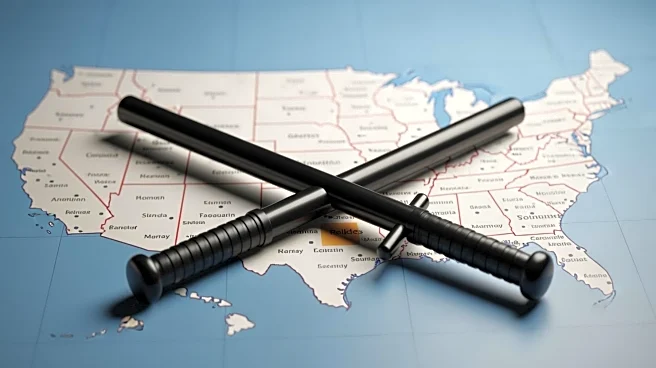What's Happening?
President Trump is contemplating a federal 'surge' to address crime in various U.S. cities, as discussed in a rare Oval Office event. The initiative may involve deploying the National Guard to cities like San Francisco. This move is part of a broader
strategy to enhance public safety and reduce crime rates in urban areas. The discussion highlights the administration's focus on law enforcement and crime prevention, aiming to tackle rising crime rates in specific regions.
Why It's Important?
The potential deployment of the National Guard signifies a significant federal intervention in local law enforcement. This action could impact the relationship between federal and local authorities, possibly leading to changes in how crime is managed in urban areas. It may also influence public perception of safety and government involvement in local affairs. The decision could affect various stakeholders, including city officials, law enforcement agencies, and residents, who may experience changes in policing and community dynamics.
What's Next?
If President Trump proceeds with the deployment, cities like San Francisco may see increased federal presence and resources dedicated to crime prevention. This could lead to adjustments in local law enforcement strategies and community interactions. Stakeholders, including city leaders and civil rights groups, may respond with support or opposition, depending on their views on federal involvement in local policing. The administration will likely continue monitoring crime trends to assess the effectiveness of such measures.
Beyond the Headlines
The deployment of the National Guard raises questions about the balance between federal and local authority in law enforcement. It may prompt discussions on the ethical implications of increased federal intervention in local matters. Additionally, the move could influence long-term policy decisions regarding crime prevention and public safety strategies in urban areas.















